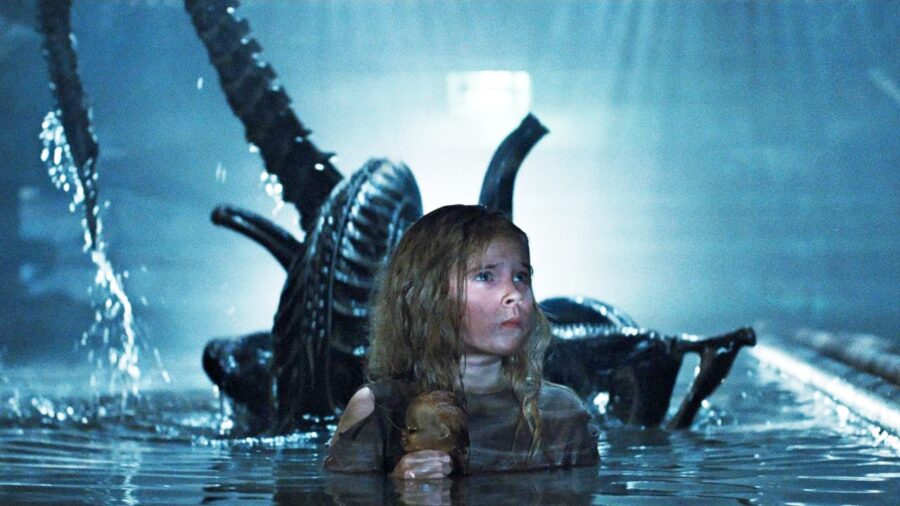James Cameron Had The Best Pitch Ever For An Alien Movie
James Cameron pitched Aliens by writing ALIEN and a money sign on a whiteboard.
This article is more than 2 years old
For years, the rumor that filmmaker James Cameron had pitched Aliens to 20th Century Fox by basically telling them “MONEY” had swirled around Hollywood, but it turns out to have been true. In an interview with CinemaBlend, James Cameron confirmed that he had sold the idea of Aliens, the sequel to the popular 1979 science fiction film Alien, in the room by writing “ALIEN” on a whiteboard in front of some executives. He then added an S to the end, presumably paused for dramatic effect, then draw two lines in the S to turn it into a dollar sign and the 20th Century Fox executives told him he could do whatever he wanted to do in Hollywood for the rest of his life, even if that meant weird blue alien creatures with mind braids.
As awesome as that story is, even James Cameron admits that the pathway to Aliens was a little bit more complex than that. As he was doing his legendary whiteboard pitch, the filmmaker was also verbally explaining that his new movie wasn’t going to be about one alien, but rather, a whole bunch of them. It is important to remember that while James Cameron was making his pitch for a movie that had basically stalled out in development years before, he was not the enormously successful and influential director he is now.
In the early 1980s, James Cameron had only directed two feature films: the ultra-low-budget Piranha II: The Spawning (which he has since distanced himself from) and the low-budget but spectacularly successful franchise-starter The Terminator (which had its own production issues). He had recently written the screenplay for Sylvester Stallone’s Rambo: First Blood Part II, but by no means did he have the kind of sway he would after the world-changing successes of Terminator 2: Judgment Day and Titanic. It showed a lot of chutzpah for James Cameron to even think he could successfully pitch a follow-up to a well-received Ridley Scott film, let alone in the most casually confident way ever.

In the CinemaBlend interview, James Cameron actually credits his comparative low status as inspiring him to pitch Aliens with such panache, saying “I mean, there’s a time to be exceptionally cheeky, which is when they don’t know who you are yet.” As history has shown us, it at least worked this particular time, as James Cameron did get the chance to write and direct Aliens, eventually resulting in one of the most acclaimed science fiction action movies of all time. On the other hand, Hollywood studio executives are likely more enticed by the scent of money in the air than sharks smelling blood in the water, so Cameron definitely knew what he was doing.
It is also interesting to think of the direction that the Alien franchise might have gone in without this bold pitch, if it happened at all. A lot of the elements that we think of as integral to the mythology of the series came from James Cameron and Aliens, including the introduction of space marines, the Queen Xenomorph, the remote moon LV-426 (which will soon get its own Hulu series), and Ellen Ripley (Sigourney Weaver) as a hardened badass. To be sure, space marines were a concept already in science fiction, but never as much in the mainstream as Aliens, and while Ripley had shown her mettle in the first Alien movie, it was the second that defined her as an icon.
James Cameron followed the success of Aliens (which was critically acclaimed and one of the highest-grossing films of 1986 worldwide) with The Abyss, which was slightly less of a blockbuster but did allow him to almost drown Ed Harris. Since those days, James Cameron has essentially had carte blanche to do whatever he wanted in Hollywood, which has led to many of his movies being the most expensive film ever produced (up till then) and then becoming some of the highest-grossing ever. That is the kind of ambition that only a man who can successfully sell a high-concept space war film with bug aliens with a whiteboard alone can pull off.
So, just remember: if you have a whiteboard and a great idea for a film, maybe you can pull it off. James Cameron did.










